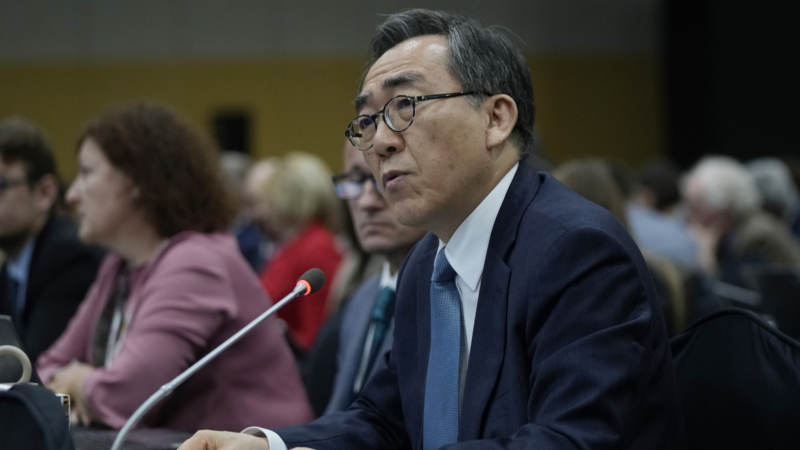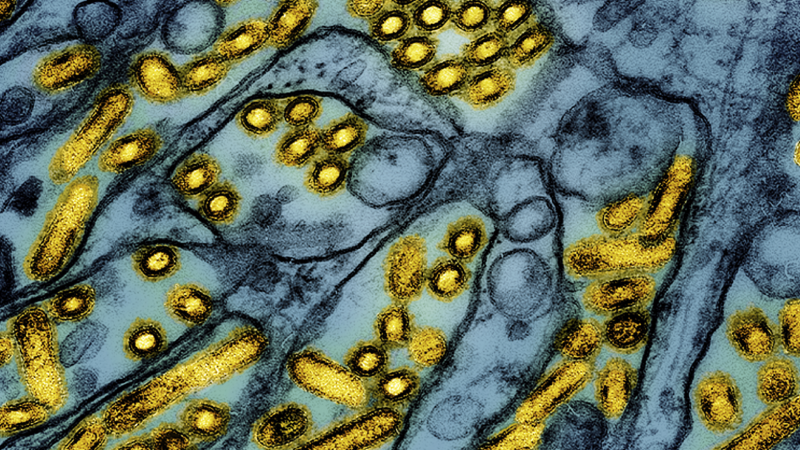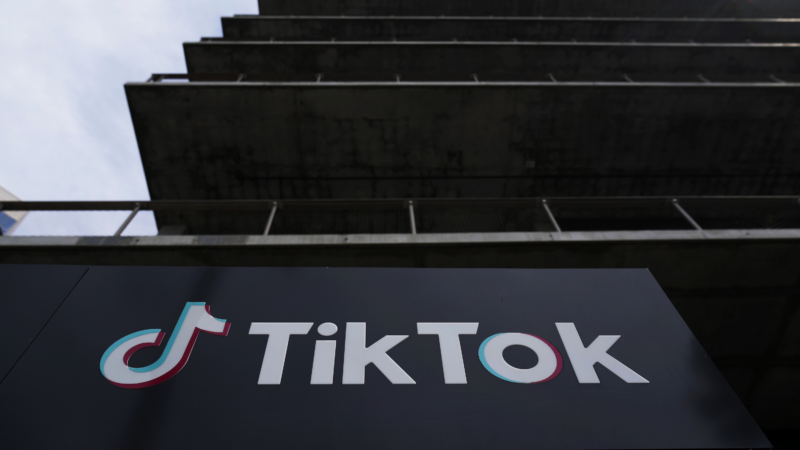Negotiators fail to reach an agreement on a plastic pollution treaty. Talks to resume next year
BUSAN, South Korea — Negotiators working on a treaty to address the global crisis of plastic pollution for a week in South Korea won’t reach an agreement and plan to resume the talks next year.
They are at an impasse over whether the treaty should reduce the total plastic on Earth and put global, legally binding controls on toxic chemicals used to make plastics.
The negotiations in Busan, South Korea, were supposed to be the fifth and final round to produce the first legally binding treaty on plastics pollution, including in the oceans, by the end of 2024. But with time running out early Monday, negotiators agreed to resume the talks next year. They don’t yet have firm plans.
More than 100 countries want the treaty to limit production as well as tackle cleanup and recycling, and many have said that is essential to address chemicals of concern. But for some plastic-producing and oil and gas countries, that crosses a red line.
For any proposal to make it into the treaty, every nation must agree to it. Some countries sought to change the process so decisions could be made with a vote if consensus couldn’t be reached and the process was paralyzed. India, Saudi Arabia, Iran, Kuwait and others opposed changing it, arguing consensus is vital to an inclusive, effective treaty.
On Sunday, the last scheduled day of talks, the treaty draft still had multiple options for several key sections. Some delegates and environmental organizations said it had become too watered down, including negotiators from Africa who said they would rather leave Busan without a treaty than with a weak one.
Every year, the world produces more than 400 million tons of new plastic. Plastic production could climb about 70% by 2040 without policy changes.
In Ghana, communities, bodies of water, drains and farmlands are choked with plastics, and dumping sites full of plastics are always on fire, said Sam Adu-Kumi, the country’s lead negotiator.
“We want a treaty that will be able to solve it,” he said in an interview. “Otherwise we will go without it and come and fight another time.”
At Sunday night’s meeting, Luis Vayas Valdivieso, the committee chair from Ecuador, said that while they made progress in Busan, their work is far from complete and they must be pragmatic. He said countries were the furthest apart on proposals about problematic plastics and chemicals of concern, plastic production and financing the treaty, as well as the treaty principles.
Valdivieso said the meeting should be suspended and resume at a later date. Many countries then reflected on what they must see in the treaty moving forward.

Rwanda’s lead negotiator, Juliet Kabera, said she spoke on behalf of 85 countries in insisting that the treaty be ambitious throughout, fit for purpose and not built to fail, for the benefit of current and future generations. She asked everyone who supported the statement to “stand up for ambition.” Country delegates and many in the audience stood, clapping.
Panama’s delegation, which led an effort to include plastic production in the treaty, said they would return stronger, louder and more determined.
Saudi Arabia’s negotiator said chemicals and plastic production are not within the scope of the treaty. Speaking on behalf of the Arab group, he said if the world addresses plastic pollution, there should be no problem producing plastic. Kuwait’s negotiator echoed that, saying the objective is to end plastic pollution, not plastic itself, and stretching the mandate beyond its original intent erodes trust and goodwill.
In March 2022, 175 nations agreed to make the first legally binding treaty on plastics pollution, including in the oceans, by the end of 2024. The resolution states that nations will develop an international legally binding instrument on plastic pollution based on a comprehensive approach that addresses the full life cycle of plastic.
Stewart Harris, a spokesperson for the International Council of Chemical Associations, said it was an incredibly ambitious timeline. He said the ICCA is hopeful governments can reach an agreement with just a little more time.
Most of the negotiations in Busan took place behind closed doors. Environmental groups, Indigenous leaders, communities impacted by plastic pollution and scientists who traveled to Busan to help shape the treaty said it should’ve been transparent and they felt silenced.
“To a large degree, this is why the negotiation process is failing,” said Bjorn Beeler, international coordinator for the International Pollutants Elimination Network. “Busan proved that the process is broken and just hobbling along.”
South Korea’s foreign affairs minister Cho Tae-yul said that though they didn’t get a treaty in Busan as many had hoped, their efforts brought the world closer to a unified solution to ending global plastic pollution.
The CDC has confirmed the first severe case of bird flu in a human in the U.S.
A person in Louisiana has been hospitalized after becoming infected with a case of bird flu that's been linked to wild birds and poultry.
Turkey looks set to play an outsize role in shaping the new Syria after Assad
As the world watches Syria grapple with the aftermath of Bashar al-Assad's brutal regime and the formation of a new government, one neighbor has emerged as having great influence over the new Syria.
The Federal Reserve lowers interest rates again — but hints at fewer cuts next year
The Fed lowered interest rates by a quarter percentage point — but policymakers are projecting fewer rate cuts next year as inflation remains elevated.
In 2024, our TV critic was grateful for fantastic shows and familiar faces
Fresh Air critic David Bianculli watches more TV than anyone he knows. He found it impossible to come up with a top 10 list this year — and is reveling in the abundance of exceptional shows.
Genital herpes is a ‘forgotten’ virus. But that doesn’t mean it’s gone away.
Over 800 million people have genital herpes — and in many cases the virus can flare up over a person's lifetime, causing painful symptoms. So why doesn't the world pay more attention?
Supreme Court agrees to review TikTok ban-or-sale law
The high court said Wednesday it will review a challenge submitted by TikTok asking for the overturn of a law that could ban the video-sharing app by Jan 19.







